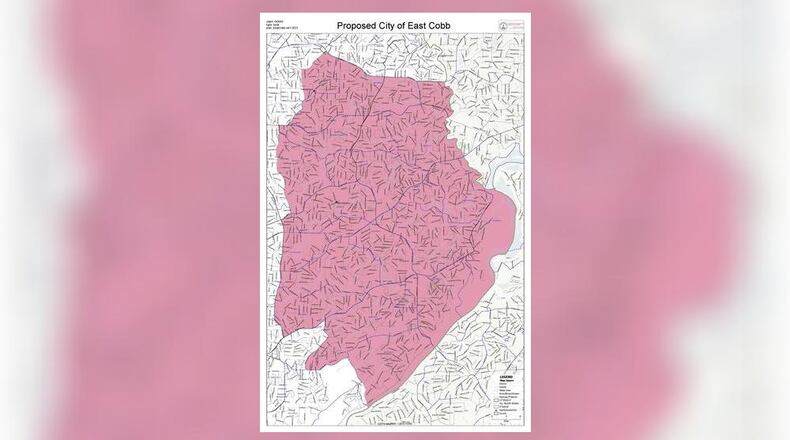Ready or not, East Cobb voters may have to decide by May whether they want to form a new city government.
The Georgia House of Representatives on Thursday voted 98-63 to allow the city of East Cobb to incorporate, sending the bill to the state Senate assuming it clears a final procedural hurdle next week.
The vote barrels the wealthy, conservative suburb toward a public referendum even as county officials and some residents complained that the process was moving so fast that voters won’t know the implications of what they’re being asked to consider.
Rep. Matt Dollar, a Republican who lives in East Cobb, said the goal was to move a handful of services to a level of government closer to the people, insisting that taxes would not increase.
“Why do the people of Smyrna deserve that level of self-governance, and the people of my community do not even deserve the right to decide if they want it?” Dollar said.
Most of Cobb County’s legislative delegation, however, voted against the plan, citing concerns over transparency and the accelerated timeline. Due to a motion to reconsider, the House will have to approve the bill again next week before it can advance.
The referendum would be held during the May primary election, five months earlier than initially planned, leaving little time for supporters or opponents to make their case to voters. The primary election vote, rather than during the general election, will likely result in fewer people deciding the issue’s fate.
“This group that is behind this, they have now had 3 to 4 years organizing. They have money, they know how to run a campaign,” said Rep. Don Parsons, a Marietta Republican who joined Cobb’s Democrats in voting against it. “The people who oppose this, they don’t have any of that.”
Earlier this month, a House committee approved the primary election date by introducing a substitute bill that had not been posted publicly or discussed at the hearing. Dollar said it was moved up in part to prevent a costly special council election next year and allow the new city.
Cobb County is facing as many as four cityhood movements that would divert revenue from the county’s tax base, leaving it with less money to provide services to those left behind. The cityhood pushes gained steam after the longtime Republican stronghold flipped to Democratic control in 2020.
Supporters of the new city say they want local control of issues that affect their community — particularly zoning and redevelopment as the county continues to grow around them. At a recent public hearing, others said the Democrat-led commission wasn’t effectively representing their community.
“Their goal is to urbanize our suburbs,” said Pamela Reardon, a real estate agent who supports the cityhood movement.
The city would provide only limited services: zoning, code enforcement, road maintenance, parks and police and fire departments. If the referendum is approved, a six-member council would be elected citywide in November.
A feasibility study by the Center for State and Local Finance said the new city would have a population of 50,000, and would have enough tax revenue to pay for the services it plans to provide. Cobb officials pleaded for more time to study its effect on the county government.
“I am not opposed to cities,” Cobb Chairwoman Lisa Cupid said at a recent hearing. “I am opposed to persons having to vote without having clear and accurate information before them.”
House leaders, however, defended the process, noting that more than half of Georgia residents live in cities; they said East Cobb residents, too, should have that right.
“What these people are asking (is) ‘let us decide,’ ” said Rep. Jan Jones, the Republican Speaker Pro Tem.
About the Author
The Latest
Featured



